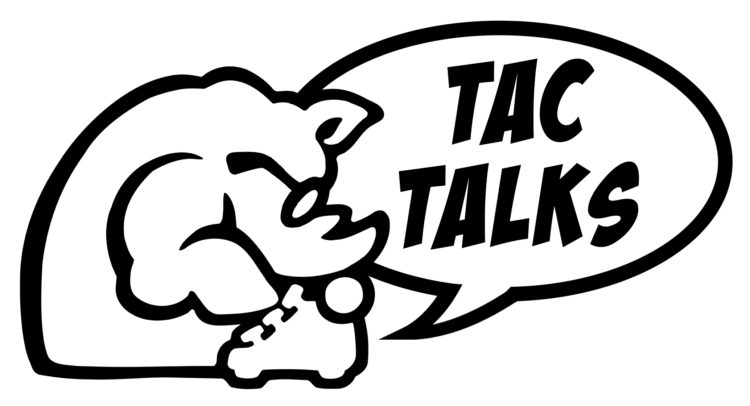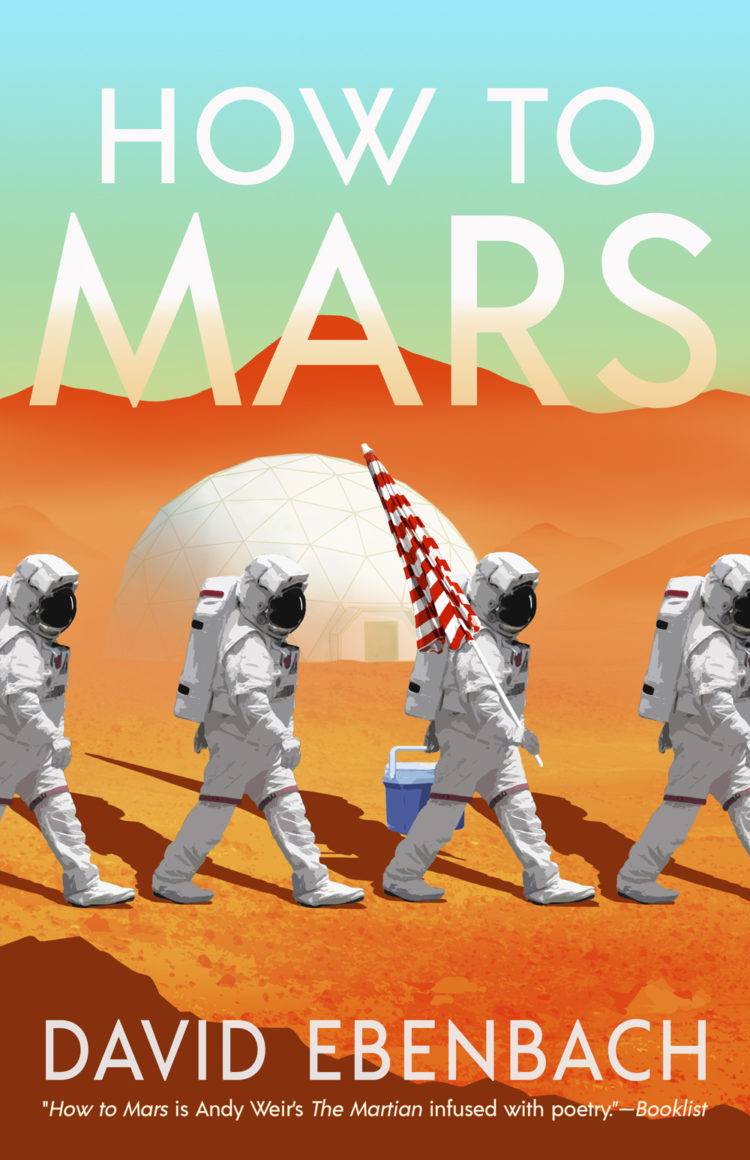Tac Talks with David Ebenbach, author of HOW TO MARS and What’s Left to Us by Evening

We welcome the award-winning David Ebenbach, author of HOW TO MARS and What’s Left to Us by Evening, for the initial Tac Talks, an occasional series of essays by Tachyon creatives. In this piece, David discusses the intersection of science fiction and science ideas.

But, Should We? Sci-Fi as Pressure-Test
by
David Ebenbach
Your scientists were so preoccupied with whether or not they could, they didn’t stop to think if they should.
-Ian Malcolm, Jurassic Park
It’s not that people always have terrible ideas—bagels, for example, are a great idea, and so are park benches and appendectomies. But people sometimes have terrible ideas, including when the stakes are high, and they don’t always know when their ideas are terrible. People too frequently mistake a fun or interesting idea for a good one.
Recently I read about a plan where we would, in order to address global warming, dim the light of the sun.
Now, the plan not quite as deranged as it sounds, in that we wouldn’t be messing directly with the sun. Instead we’d release reflective particles into the Earth’s atmosphere so that not as much light would reach (and heat) the surface of our planet. Kind of a cool, clever idea, right? For sure. Though, could carrying out this plan disrupt our existing weather patterns in unpredictable and perhaps devastating ways? Could it cause monsoons? It could, according to some scientists, potentially do those things.
So, it’s a questionable idea (that some folks are pressing pretty hard all the same). But that doesn’t mean we should stop coming up with new ideas. After all, one of our other main fun plans for addressing climate change—ignore it and just keep partying—is not a good one at all. And our least fun and most sensible idea—reduce resource use and carbon emissions—turns out to be a crowd-non-pleaser and thus might not be realistic. So it looks like we do need to keep generating ideas, and not just about climate change but about all kinds of problems and opportunities, until we come up with some truly good ones that people can (and should) embrace.
Along the way, though, I think it’s our job to ask questions about the ideas that emerge.
And I think science-fiction writers are in a uniquely good position to ask those questions. In fact, more than asking questions, we can take ideas for an imagined test-drive. We can, in our writing, flesh out scenarios that allow us to test whether/how the ideas might work, as well as what effects they might have—on people, the world, the universe, and so on. And then our work can serve as feedback or even inspiration to the idea generators. We might not have gotten cellphones, for example, if it wasn’t for Star Trek introducing communicators. And I have to believe that Jurassic Park has made us at least a little less likely to recreate dinosaurs.
One of the questionable ideas of our time that interests me most, and that I’m most skeptical of, is the one that says we ought to colonize other planets in the solar system. Planets where the temperature is way too hot or cold to support human life, where radiation levels are carcinogenically high, where we can’t breathe the air, and where there’s nothing for us to eat. (Don’t worry! the enthusiasts say. We’ll just terraform those planets! Never mind that we can’t even seem to come together as a species to keep Earth terraformed.)

Cover by Elizabeth Story

I’m interested in this idea because it’s cool; geodesic domes on Mars and cloud cities on Venus are incontrovertibly awesome things to imagine. And I’m skeptical because, although smart folks have worked through a lot of logistical details, I’m not sure we’ve fully thought through the enormous challenges—not just technical but also biological, psychological, and sociological—that would come with this kind of endeavor.
The combination of interest and skepticism is just what I need as a writer.
And so, when in 2015 a company called Mars One proposed to send a dozen people on a one-way trip to Mars, funded by a reality show about them and governed by the single rule that they weren’t allowed to have sex on Mars (what?!?), my ears perked up and I got to writing. The novel that resulted, HOW TO MARS, gives the Mars One idea (which may in retrospect have been a joke or a fraud) a pretty big pressure test.
Friends, we need to get a little more serious about human psychology before we start getting serious about setting up domes on the red planet.
And when people talk about creating cities to float on the clouds of Venus, above a planetary surface so inhospitable that it crushes and melts lead (talk about a pressure test), that perks my ears up, too, and I get writing again. My first story set on Venus, “Everybody Needs a Conditions Box,” was recently accepted by the great people at Analog Science Fiction and Fact. It begins with a newly-sentient AI city on the clouds of Venus asking the question, “Are we sure this is such a good idea?”
I write about this stuff not because I want to behave like Venus and crush and melt all proposals indiscriminately, but because I think somebody needs to be asking questions, and that a sci-fi writer might be the right person to do it. It’s fun, too. People are really interesting when they’re thinking big, and they’re even more interesting when they’re dealing with the results of that big thinking, especially if they’re dealing while trapped together in a planetary environment that’s not really suitable for human life. That situation brings out all kinds of fun stuff. And by “fun” I mean everything from “beautiful” and “exciting” to “terrifying” and “sad” and “hilarious.”
Science fiction is valuable in part because it can bring out all that fun stuff on the page, to give our big thinkers an idea what might happen if their ideas were actually implemented. Because monsoons, rampaging dinosaurs, suffocation, and crushed Venusian cities—don’t you think we’re better off reading about them then actually experiencing them?
